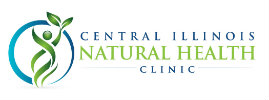This has to be one of the most common questions I hear as a doctor of naturopathic medicine. Is it vegetarianism? The Paleo diet? Local foods? Raw foods? Gluten free? Blood type diet? Unfortunately, there’s no simple answer to this question for all people. A lot of it depends on a person’s specific health conditions: there may be food allergies/sensitivities, gastrointestinal disorders, diabetes, or other situations that would dictate specific dietary prescriptions.
For most folks, though, I follow the advice of author Michael Pollan: “Eat food. Not too much. Mostly plants.” In other words, lay off the processed foods, convenience foods, and fast food meals. Use sensible portion sizes. Take advantage of the undisputed disease-fighting properties of the phytochemicals and fiber in fruits, vegetables, legumes, and whole grains.
The U.S. is one of the only countries that has such questions about proper diet, because we have no strong food traditions. Most areas of the world developed cuisine systems over centuries that were based around fresh, whole foods available in season — and that keeps most folks healthy.
With our usual American gusto for taking things to extremes, some folks even develop a pattern that has been called “orthorexia” — that is, an interest in healthy eating that becomes so obsessive as to interfere with many aspects of one’s everyday life. For this reason, I do not routinely prescribe highly specific diets to every patient. I don’t tell every patient to completely avoid dairy, gluten, and sugar. Part of healthy eating is having a healthy relationship to food — and a good relationship is not based on fear.

